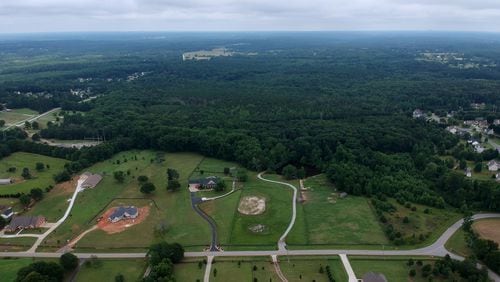Gwinnett County’s millage rate — the figure used to calculate property taxes — is unlikely to go up this year, officials said Tuesday.
During a presentation to the county’s Board of Commissioners, finance director Maria Woods said Gwinnett’s net tax digest is expected to be nearly $30.8 billion in 2018, a 3.8 percent increase from 2017.
Re-adopting the current general fund millage rate of 7.4 mills, then, would result in the collection of about $16 million more in tax revenue. If the county wanted to collect the same amount of tax revenue, it could adopt a rollback rate of 7.21 mills, Woods said.
The rollback rate could, generally speaking, save the owner of a home assessed at $200,000 about $40.
Projections involving a raised millage rate were not presented Tuesday — for an obvious reason.
“I have no anticipation of an increase in the millage rate,” Commission Chairman Charlotte Nash said.
Gwinnett's government last raised its millage rate last year, when it added about one-third of a mill in order to help cover the cost of pay raises for law enforcement personnel.
(A number of individual rates are also combined to the general fund millage rate referenced above to get the overall millage rate. Gwinnett’s overall 2017 millage rate was 13.51.)
The millage rate staying the same or being rolled back does not necessarily mean any one individual’s property taxes will go down.
If someone’s home, for instance, increased in value, they could end up paying more taxes despite the rate remaining the same.
Gwinnett County does, however, offer something called a value-offset exemption for many homeowners. The exemption excludes the increase in value when calculating taxes.
Nash said Tuesday she has “no idea what the appetite of individual commissioners” is, in terms of keeping the same millage rate or rolling it back.
By law, the county must hold three public hearings on the millage rate before voting on it. Those meetings have not yet been scheduled.
The commission expects, however, to vote on the millage rate during its July 17 meeting.
In other Gwinnett news:
About the Author







